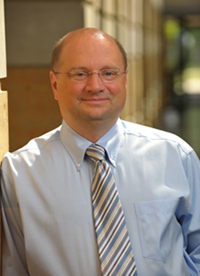
President Barack Obama’s most recent recognition – the 2009 Nobel Peace Prize – puts him in the company of such iconic figures as Nelson Mandela, who sought to end apartheid, and Mikhail Gorbechev, who helped bring an end to the Cold War.
While reactions around the world to this announcement have been mixed, Scott Appleby, a University of Notre Dame professor of history and Regan Director of the University’s Kroc Institute for International Peace Studies, believes that those who doubt the president’s worthiness “betray a stunted notion of what constitutes peace-building.”
So why is Obama an inspired choice?
“Consider, first, the daunting set of problems facing the world, from nuclear proliferation to environmental degradation to resource wars that draw upon and deepen ethnic, religious and national animosities,” Appleby said. “These problems are interconnected, global in scope and scale, and beyond the capacity of any one nation, or bloc of nations, to manage effectively.”
Many believe the honor is a rebuke to the foreign policies of former President George W. Bush.
“The message conveyed to the world over many years by the world’s most powerful nation, that ‘you are with us or against us,’ that any partnership between peoples and nations begins from our set of assumptions and values and ends there,” says Appleby.
This fuels a “psychological impact of the accumulating expressions, at home and abroad, of mistrust, hatred, racism, ethnic warfare, religious extremism and violent nationalism.”
“Finally,” Appleby said, “consider a president who acknowledges human dignity based not on color, faith or citizenship, but inherent in our common humanity. Decidedly not a man who closes his eyes and ears to evil or papers over real conflict, but who powerfully draws the lines of division, not between classes, races, religions and nations, but between those who want to work together, as authentic partners for the universal common good, and those who do not."
Media advisory: Scott Appleby’s comments may be used in whole or in part. He is available for interviews and can be reached at 574-631-5665 or appleby.3@nd.edu
From: Susan Guibert, office of news and information, 574-631-2867 or sguibert@nd.edu